November is celebrated as Native American Heritage Month, a time to honor and recognize the cultures, histories, and contributions of Native American communities. Throughout history, the portrayal of Native Americans in literature, film, and popular culture has been riddled with harmful stereotypes and misrepresentation. However, in recent years, there has been a growing recognition of the importance of accurate and respectful representation of Native American cultures so their voices can finally be heard.
Native Americans have historically been subjected to a range of harmful stereotypes perpetuated by European colonizers, early American literature, and later, the film industry. These portrayals often reduced complex and diverse cultures to simplistic, one-dimensional caricatures. In early American literature, Native American characters were often relegated to the role of antagonists or sidekicks. Notable exceptions, such as James Fenimore Cooper’s “The Last of the Mohicans” (1826), provided a more nuanced portrayal, but they were the exception rather than the rule.
Over time, Native American authors like Sherman Alexie, Louise Erdrich, and Leslie Marmon Silko emerged, offering authentic perspectives and challenging prevailing narratives. Their works, such as “The Absolutely True Diary of a Part-Time Indian,” “Love Medicine,” and “Ceremony,” began to showcase the complexities of Native American identity, history, and contemporary life.
The film industry has played one of the largest roles in shaping public perceptions of Native Americans in the last century. Early Hollywood Westerns often depicted Native Americans as savage enemies or mere background elements. Non-native actors also frequently portrayed Native American characters, perpetuating the erasure of actual Native voices.
There are encouraging signs of change on the horizon. Initiatives like the Sundance Native Filmmakers Lab and the Native American Feature Film Writers Lab provide much-needed resources and support for aspiring Native filmmakers. Advocacy groups and organizations, such as IllumiNative and the Native American Media Alliance, work to promote accurate representation and amplify Native voices in media and arts. These examples demonstrate a growing trend in the entertainment industry to prioritize authentic storytelling and representation of Native American communities.
The representation of Native Americans in media and arts has come a long way, but there is still much work to be done. By acknowledging the historical context and persisting challenges, we can continue to strive for authentic, respectful, and inclusive portrayals of Native American cultures and communities. As audiences demand more diverse and accurate narratives, it is imperative that we support and uplift Native voices in the creative industries, ensuring that their stories are told with the authenticity and respect they deserve.
Check out these TV shows and films in honor of Native American Heritage Month:
Reservation Dogs
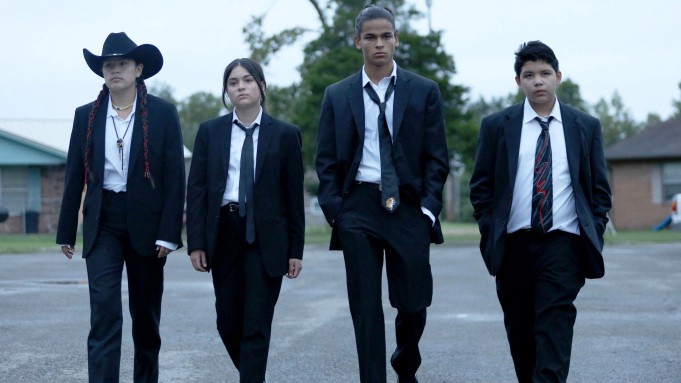
Created by Sterlin Harjo and Taika Waititi, this comedy-drama series is set and filmed in Oklahoma and follows a group of Native American teenagers navigating life on a reservation. The show is celebrated for its authentic portrayal of Indigenous culture, humor, and the challenges faced by young Native Americans. It has received critical acclaim for its fresh and nuanced representation of Native experiences.
Where to watch: Hulu
RUMBLE: The Indians Who Rocked the World
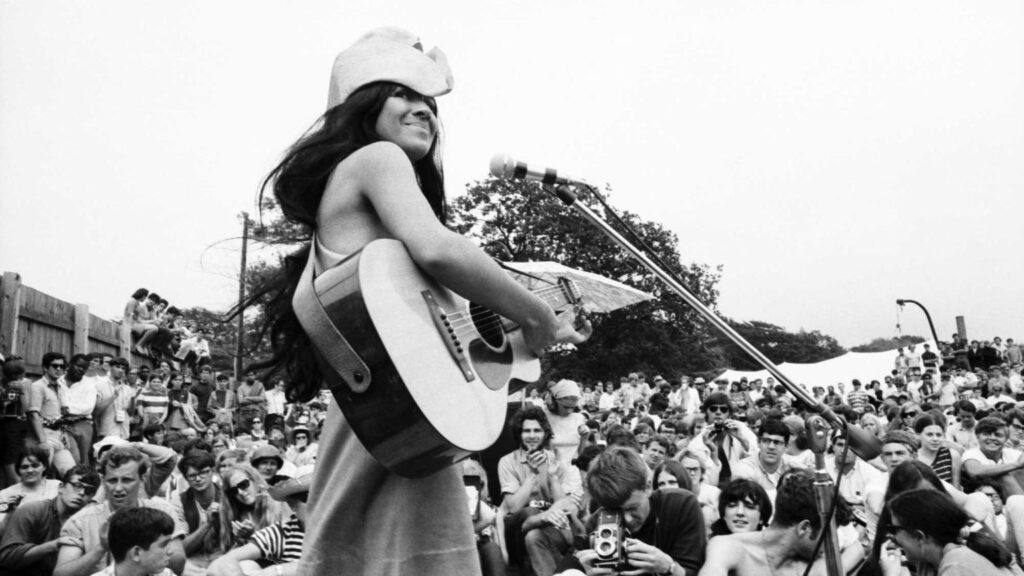
“RUMBLE” is a documentary that highlights the influence of Native American culture on modern music. It explores how Native American melodies, rhythms, and beats evolved within 20th-century American rock. The film showcases iconic Native American figures like Robbie Robertson and Buffy Sainte-Marie, who played pivotal roles in shaping the genre. This documentary sheds light on this often-overlooked chapter in music history, making it a must-watch for music enthusiasts.
Where to watch: Netflix
Te Ata
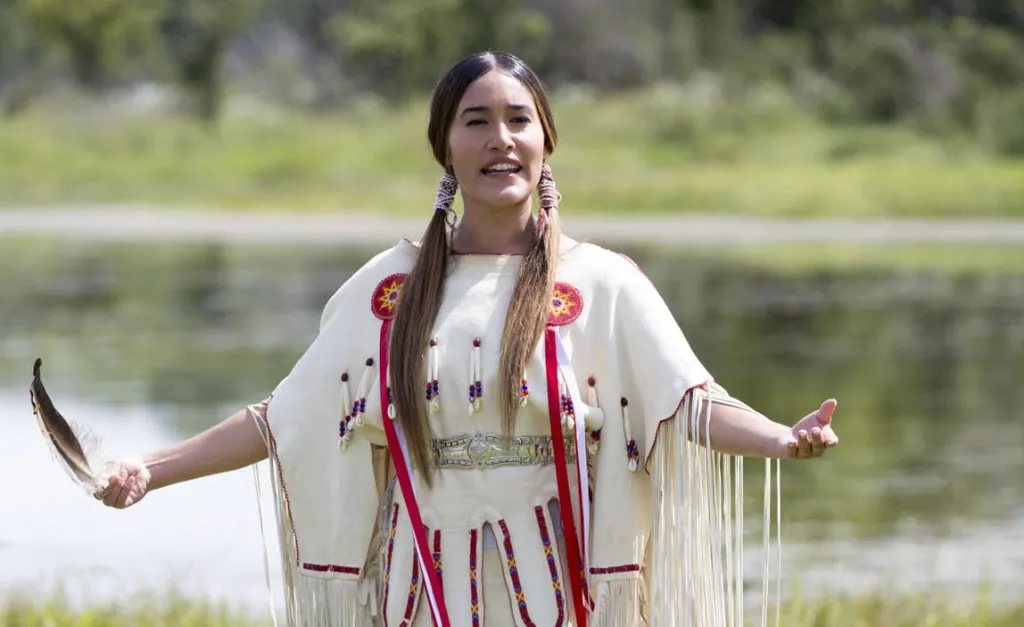
“Te Ata” recounts the remarkable life of Mary Thompson Fisher, an extraordinary Native American performer. Raised in the Chickasaw tribe’s rich cultural traditions, Te Ata overcame cultural barriers to become a renowned entertainer. Her path was marked by self-discovery, love, and a successful stage career that included performances for US presidents, European royalty, and global audiences.
Where to watch: Available to rent on YouTube, Apple TV, and Prime Video
Smoke Signals
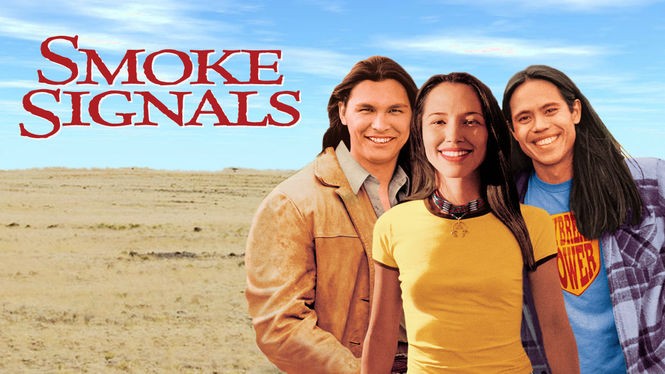
“Smoke Signals” tells the story of Victor Joseph and Thomas Builds-the-Fire, raised on the Coeur d’Alene Indian Reservation, who have a complex friendship shaped by their contrasting perspectives on their shared Native American identity. When Victor’s troubled father passes away, they embark on a journey to retrieve his ashes, leading to a deeper understanding of their own identities and their relationships with their fathers.
Where to watch: Streaming on Showtime, also available to rent on Prime Video and Apple TV
Dark Winds
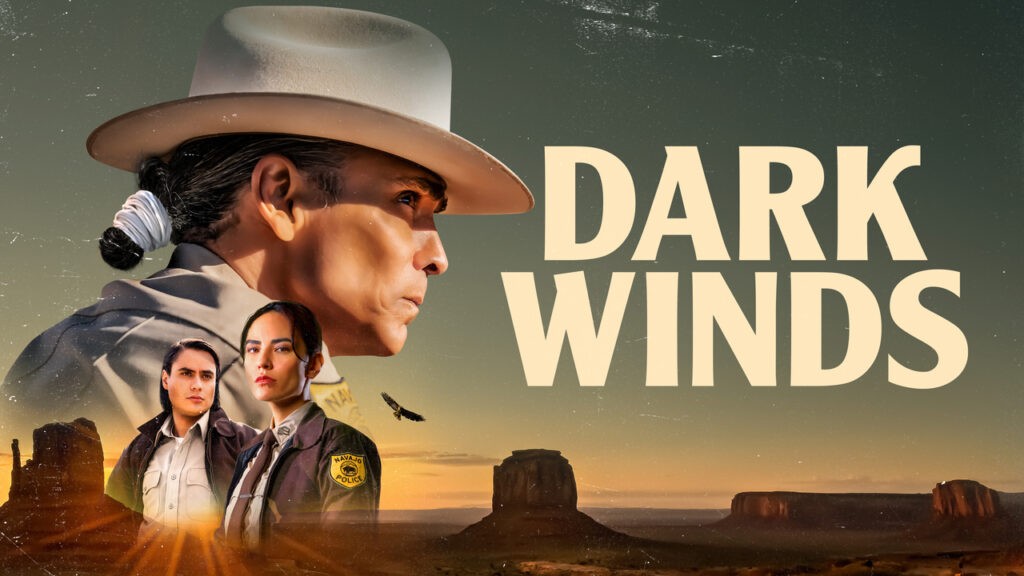
Set in the 1970s Southwest, ‘Dark Winds’ centers on Leaphorn and Chee, two Navajo police officers grappling with a double murder case. As they delve into the investigation, they confront personal spiritual dilemmas, adding depth to the portrayal of their Navajo Nation surroundings. The show stands out for its authentic representation, with a predominantly indigenous cast and the use of the Diné Bizaad language in the dialogue.
Where to watch: Streaming on AMC, also available to rent on Prime Video and Apple TV



